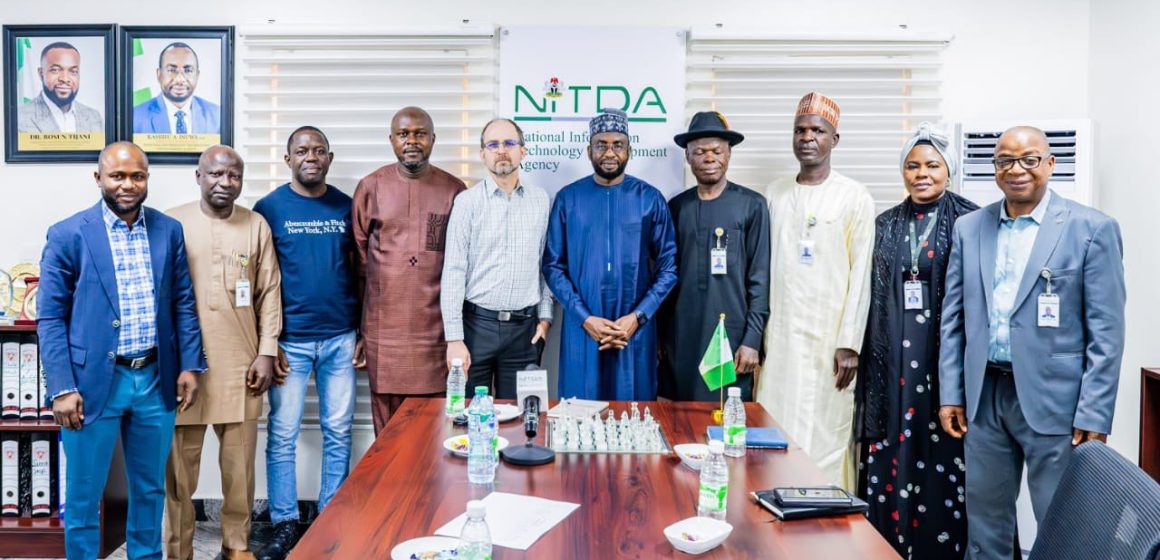In order to address food insecurity in Nigeria, the Director General of the National Information Technology Development Agency (NITDA) has stated that the organization is willing to collaborate with the US Agency for International Development (USAID) and pertinent stakeholders. With over 70 million arable land, NITDA has enough food to feed not only Nigeria but all of Africa.
The announcement was made by the Director General during a meeting at the Agency’s Corporate Headquarters in Abuja with representatives from USAID, led by Josh Woodard, Senior Digital Advisor, Bureau for Resilience, Environment, and Food Security. The visit was intended to collaborate with NITDA and conduct a quick landscape assessment of digital agriculture in Nigeria.
One of President Tinubu’s main areas of focus, according to Inuwa, is advancing agriculture to achieve food security. At NITDA, we were established to create the National IT Policy, which goes beyond simply developing IT to increase productivity in all important sectors, including agriculture.
In order to build an agriculture strategy with IT in mind and make it a more appealing industry to the younger generation, he continued, “that is why we do a lot of initiatives.”
According to Inuwa, NITDA has identified six cutting-edge technologies that will help Nigeria achieve food security. He stated, “We are working with the ecosystem to develop a strategy on how to use AI in agriculture, health, education, and so on. The workshop on co-creation of an artificial intelligence (AI) strategy started on Monday.
“We are developing applications for the Internet of Things (IoT) in agriculture, including precision irrigation, soil and crop monitoring, livestock monitoring, and climate monitoring.”
“Unmanned aerial vehicles, or UAVs), are being used to help with pest detection, water control, yield assessment, and other tasks.”
We are developing applications of blockchain for quality control, record keeping, and the traceability of farm produce from farm to store.
“We are working on automating physical farm processing, such as weeding, harvesting, tractors, and many more, using robotics to enhance productivity in agriculture.”
We are aiming to use additive manufacturing to advance our agricultural manufacturing sector by producing customized equipment, crop and soil monitoring devices, and many other things.
Speaking about NITDA’s dedication to seeing to it that Nigeria grows its digital offering domestically, Inuwa mentioned that since the Nigeria Startup Portal’s launch last week, more than 12,000 startups have registered. He said they would receive labels and then be eligible for rewards.
According to Josh Woodard of USAID, the purpose of the meeting was to provide USAID with firsthand knowledge of Nigeria’s digital farming practices in order to better integrate digital technology into agriculture.
He disclosed that the Federal Ministry of Agriculture and Rural Development and USAID recently collaborated to launch the Global Food Security Strategy for Nigeria (2024–2029).
“We want to work with all stakeholders to ensure food security in Nigeria,” the speaker declared.
During the meeting, the National Adopted Village for Smart Agriculture (NAVSA) was discussed along with its success stories, the expansion strategy that it is implementing, and its call for USAID to be involved in the initiatives.



Leave a Reply